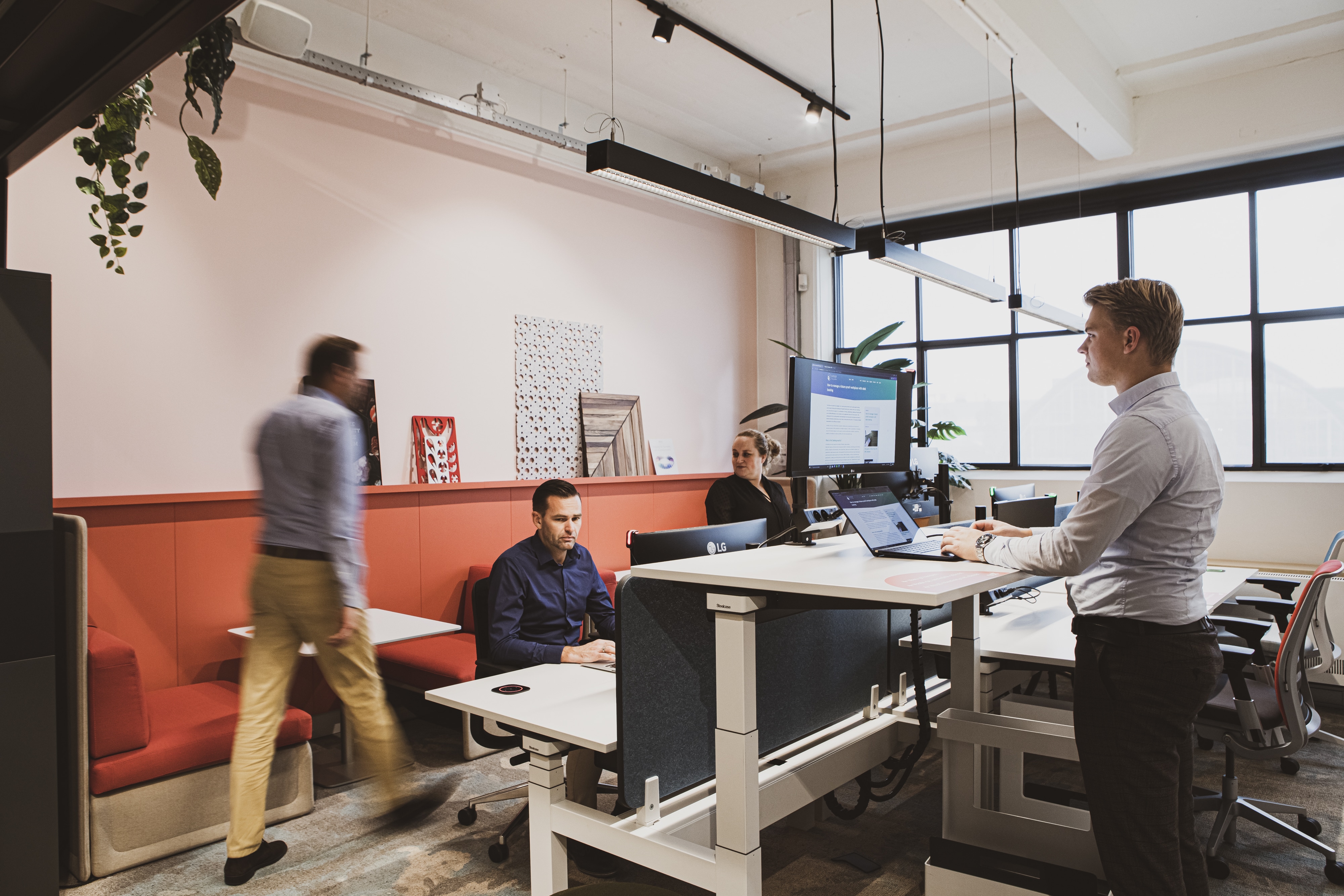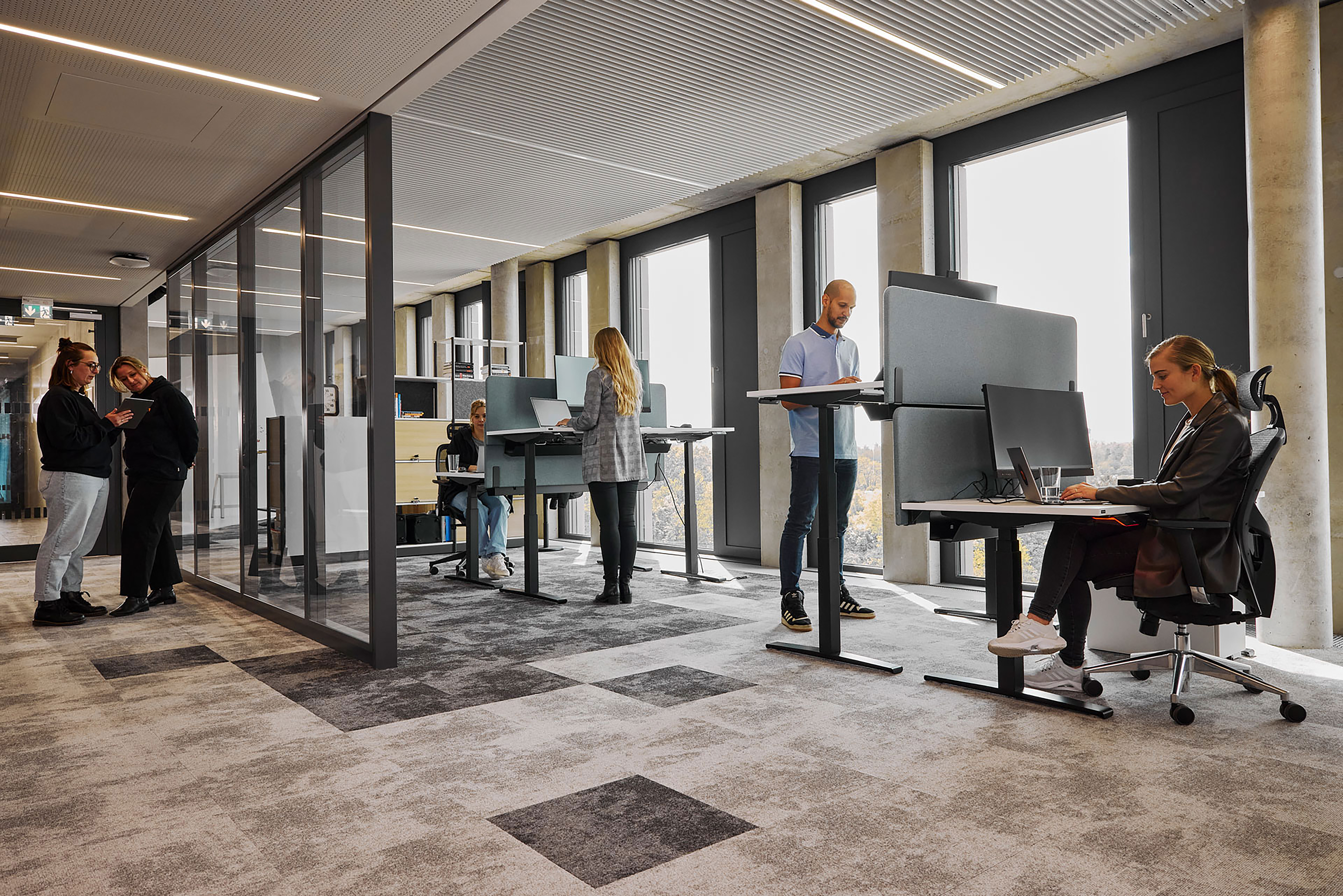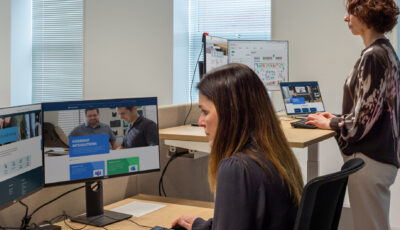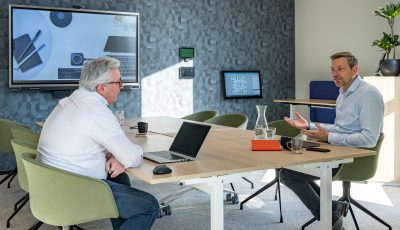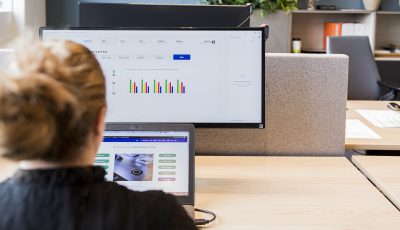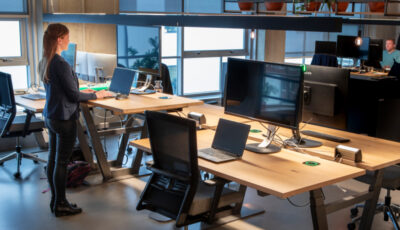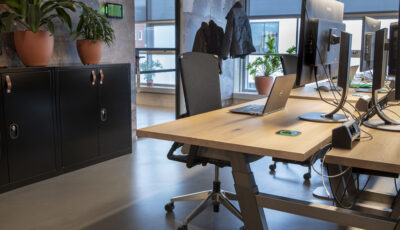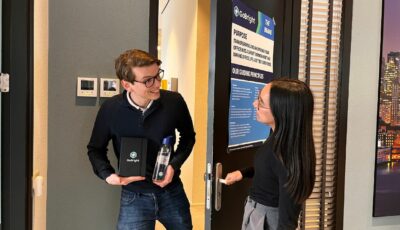Companies that embrace the fact that the future office is an evolving office, are looking for ways how to best implement Hybrid Working in their company culture. What things must they take into consideration? What do they need to do to keep their employers and employees informed, engaged and satisfied? The Office of the Future will be a smart office that relies on data to make strategic decisions. For example, decisions about new ways of working, as well as decisions about the wellbeing and productivity of employees. Facility Managers need to prepare themselves by adopting new policies and technologies in these changing times.
The Future Office: here are 5 facts to consider…
1. Hybrid Working
2019: <40% of the employees wanted to work remote (partly).
2022: >75% of the employees prefer to work hybrid.
More and more employees want to work hybrid. Hybrid Working is a flexible way of working where efficiency, productivity and collaboration is supported. It is the perfect opportunity for employers to explore and facilitate what their employees need and expect. The art of creating an efficient Hybrid Working environment is to be flexible. Making it possible to work from home, or to work outside of the standard office hours and providing employees with the right tools. But, how do employees stay connected, informed, and in control? The most important element of Hybrid Working is technology. Structuring communication and realising a flexible workspace can be done by using the right technology.
2. Employee Wellbeing
Prioritise the wellbeing of your employees. This leads to increased productivity and less sick days.
The interactions employees have with the organisation, colleagues and their employer determine the employee experience and even their wellbeing. Employee wellbeing is defined as the overall mental, physical, emotional, and economic health of your employees. It’s influenced by various factors such as their relationships with co-workers, the decisions they make, the way they feel heard and seen, the autonomy they get, and the tools and resources they have access to. A healthy, safe, and smart environment is essential for creating a positive employee experience. Showing that you take care of your employees and providing them with the best possible work environment positively affects the credibility of any organisation. And people who are happy and healthy, feeling heard and seen, tend to be more productive and less likely to be sick.
3. Digital Transformation
‘77% of CIOs rated digital transformation at the top of budget priority.’
We live in a digital age. We can control almost everything from our mobile phones. Smart devices ‘communicate’ with each other, systems can make automated choices for us and everything is measurable. The transformation to an increasingly digital world often improves our lives. Of course, this also applies to ‘the office’. Companies that can innovate and digitise in a customer-oriented way are more successful.
In the office of the future, more work can be done in less time. Creating an ecosystem of platforms, connections and technology is essential for smart workplaces. It allows for a more productive, efficient, and flexible way of working for both employees and employers. Furthermore, it gives employees control over their work environment, as it helps them to work autonomously and make their own choices.
4. Workplace Analytics
2025: data analytics is critical for addressing costs and performance. Research shows that 75% of occupiers claim that data is the key to achieving their strategic goals.
At the office employees and visitors are confronted with a lot of situations that can influence the way we experience our stay. The temperature, quality of the lighting, availability of inspiring workplaces and meeting rooms, safety and hygiene, catering options, information provision, etc, etc. Employers find it important to offer a pleasant and inspiring environment where people can get the best out of themselves.
From available data, you can create insights into the way the office is used. That way you can make smarter, more sustainable or more efficient choices. How do you manage office occupancy, no-shows, and desk sharing, for example, when everyone is designing their own workweek? Data-Driven Workplaces give insight into workplace performance, occupancy rates, and utilisation. Collecting data helps to make fact-based and data-driven decisions to develop new ways of working. This way a future-proof and effective workplace can be created.
5. Sustainability
Urgent task: take your corporate social responsibility now! Meet the 2030 UN Sustainable Development Goals.
Ecological and environmental balance is supported by introducing sustainable office policies. The goal of a sustainable workplace is both reducing and preferably, entirely avoiding the depletion of natural resources. The United Nations adopted the Sustainable Development Goals (SDGs) in 2015. This is s a universal call to action to end poverty, protect the planet, and ensure that by 2030 all people enjoy peace and prosperity. Additionally, the European Union (EU) has agreed that all energy supply should be CO2-neutral in 2050, resulting in a CO2-reduction goal of 55%.
Goals as these have many benefits that are interesting for corporates. In addition to creating a better working environment for your employees and being responsible for the environment, sustainability in the office can also save you time and money. With the sustainable use of workplaces, meeting rooms, and equipment you can save costs on energy or even floor space. But you will also notice that equipment lasts longer if it is used less often.
A sustainable office contributes to a healthier working and living environment and reduces the use of space, materials, and costs.
